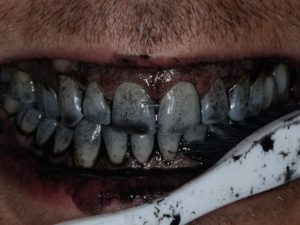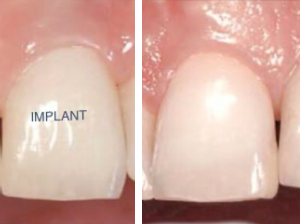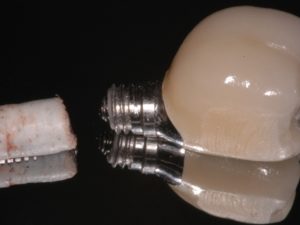
Toothache pain presents in many different ways, and sometimes even professionals have a difficult time diagnosing the cause. If your tooth nerve is dead or dying, you need to have a root canal or the tooth extracted. Note that some of these teeth may have no symptoms at all. If the nerve inflammation is reversible, a dental restoration, adjustment, or time alone may relieve the pain. Also, some toothache pain is from a secondary site, and may not be caused by a tooth at all. Here are some general guidelines that will help you know if you need a root canal:
Cold/heat sensitivity (momentary) – Sharp, short lived pain from hot or cold does not typically indicate the need for a root canal. The tooth may have a cavity, defective restoration, or exposed root structure.
Cold/heat sensitivity (lingering) – If the pain from hot or cold lasts more than 5 seconds or throbs, the tooth probably needs a root canal. Pain relieved by applying cold is another indication the nerve is dying.
Pain on biting – If you just had a dental restoration placed, the bite may need to be adjusted. This could also indicate a cavity or a cracked tooth. Cracked teeth have a variety of treatments, depending on how deep the crack extends. Sometimes an infection from a dead nerve will elevate the tooth, causing it to touch first when you bite down, and causing a lot of pain.
Unprovoked pain – Unprovoked or constant pain is an indication of a dying nerve. The pain is often described as a throb or a toothache, and sometimes intensifies when lying down.
Large swelling visible outside the mouth – You need to see an dentist or endodontist immediately. Large swellings caused by tooth abscesses can be life threatening.
Other causes – Sometimes other things masquerade as tooth pain. Sinus congestion can cause pain in the upper posterior teeth. Sore muscles can also refer pain to the teeth. Recently placed dental restorations can be very sensitive, especially if the bite is off.
If you have dental pain, it is important to have it examined by a dental professional. Dr. Melander is a general dentist that can diagnose and perform root canals in his office. Difficult and retreatment cases are referred to the specialists at Canyon Ridge Endodontics. If you would like an evaluation with a North Scottsdale dentist, give Enamor Dentistry a call today!





